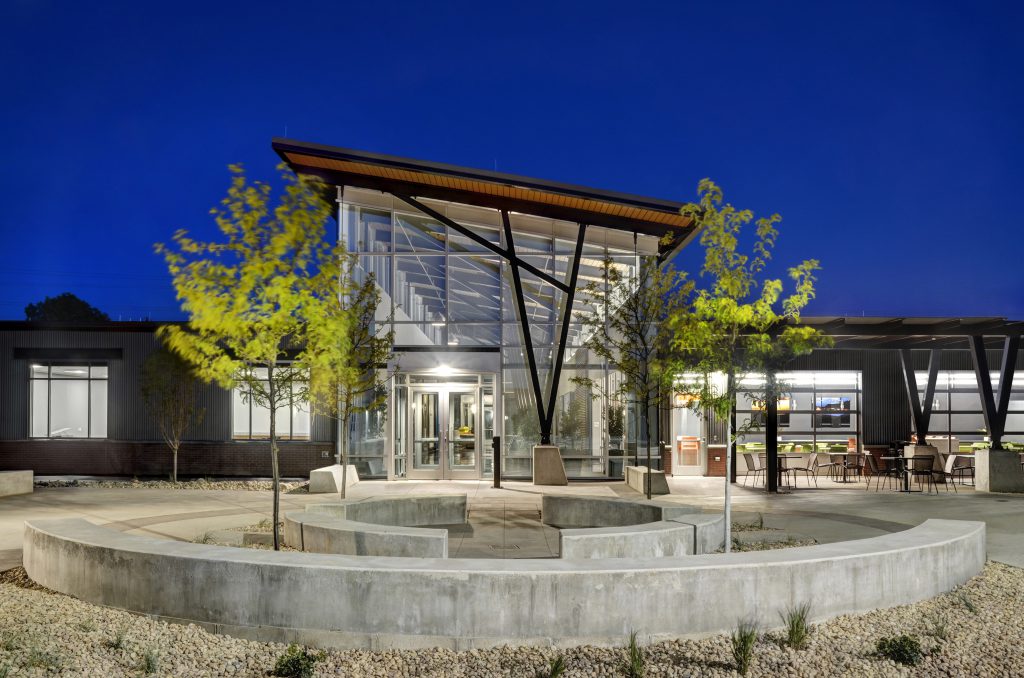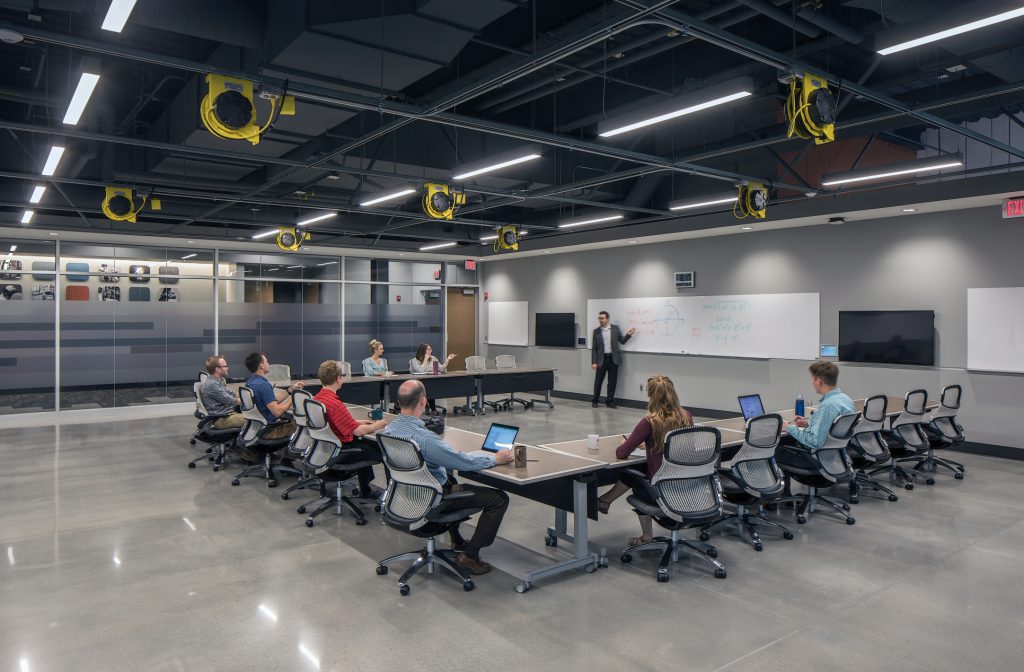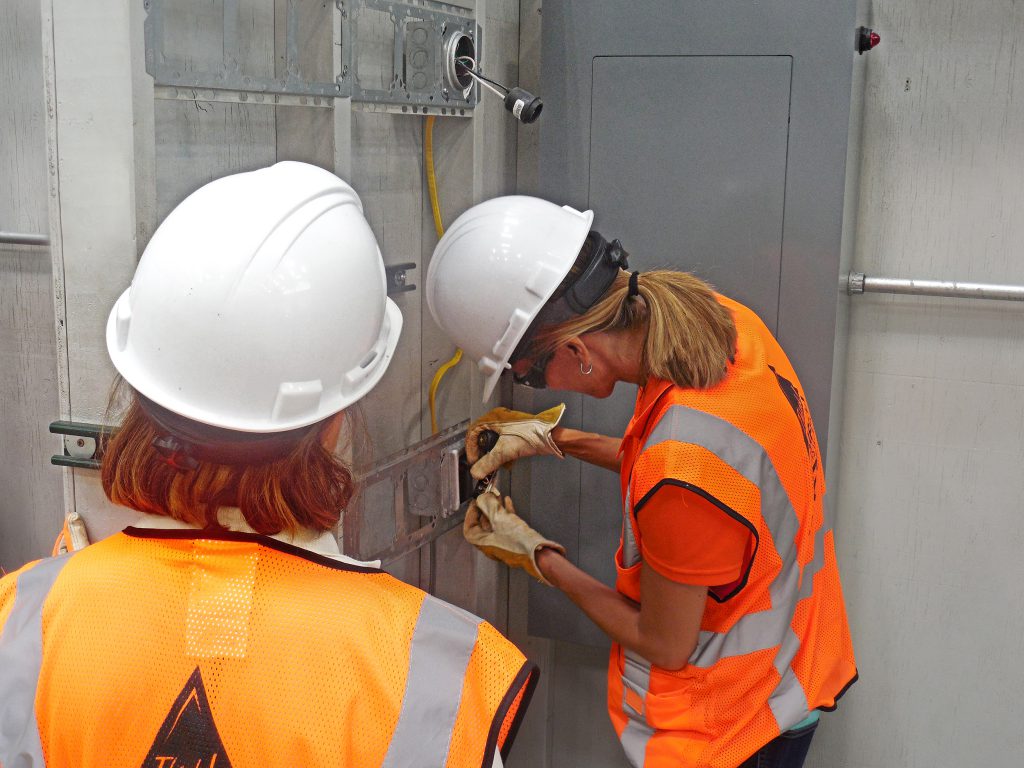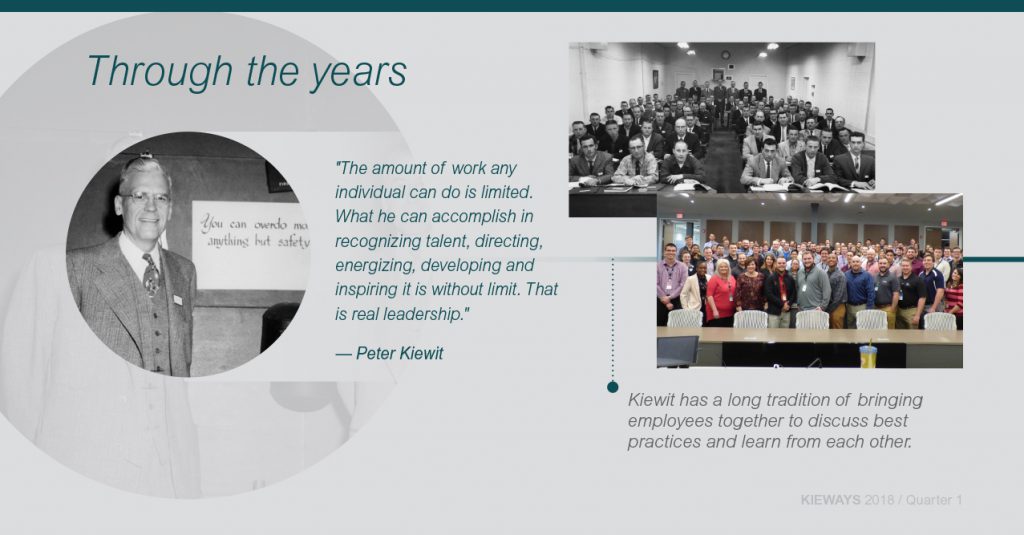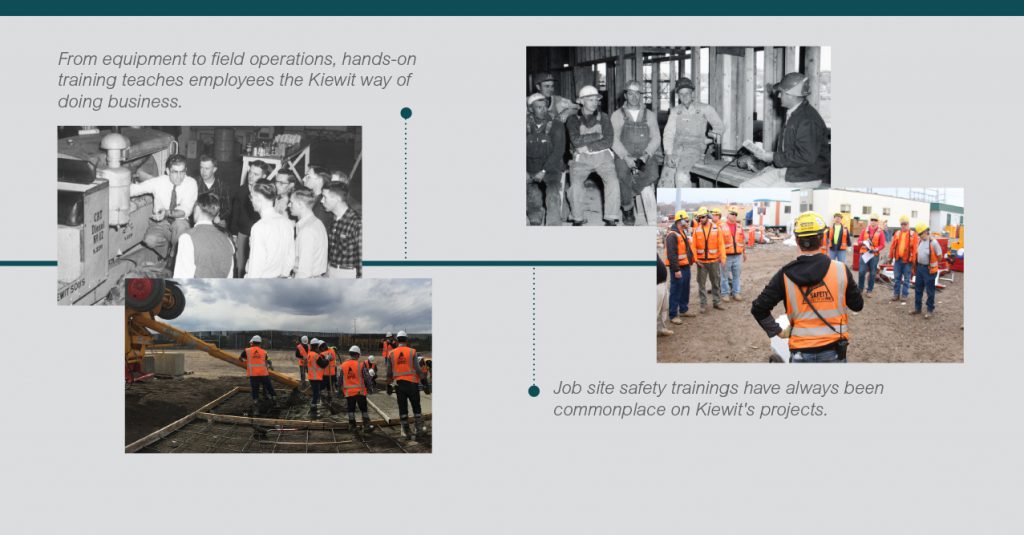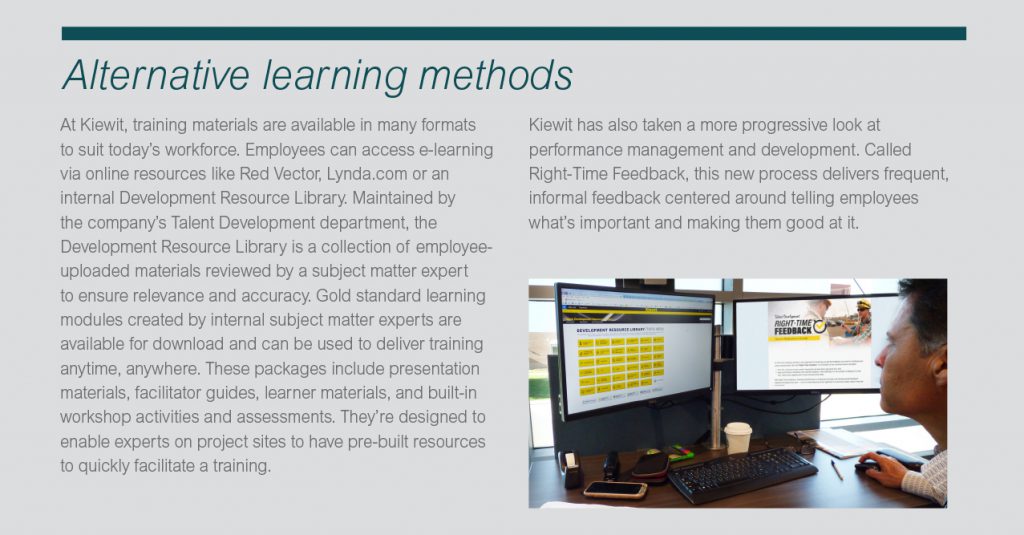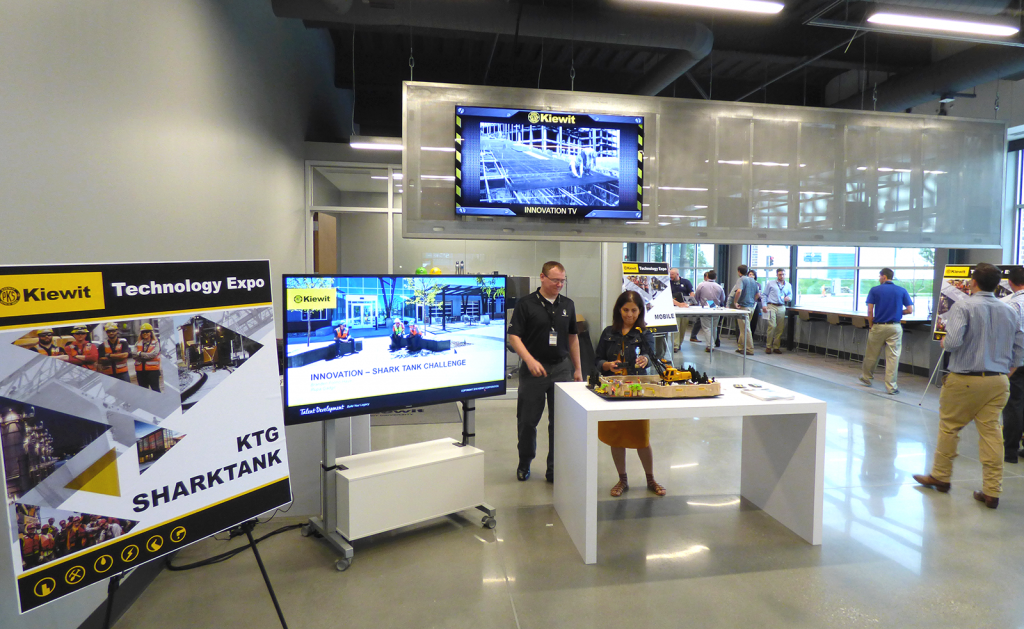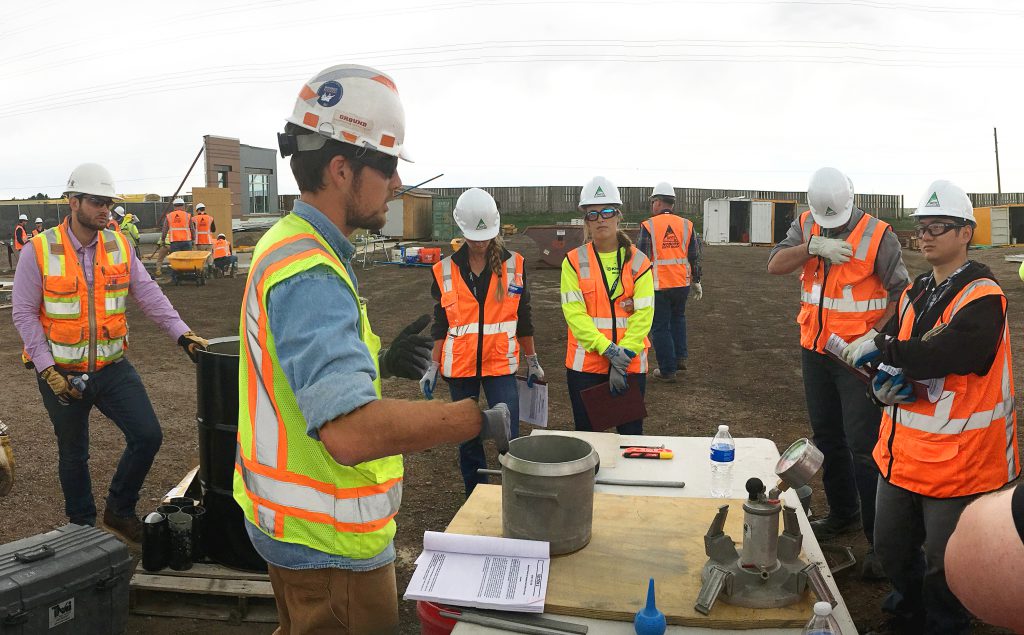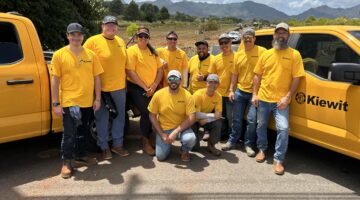Developing Kiewit’s future
Every year, more than 6,000 Kiewit employees from across North America visit two Kiewit-owned facilities for career training and development. Located in Omaha, Nebraska, and Aurora, Colorado, Kiewit University and The Training Center are equipped with modular classroom spaces and state-of-the-art technology among many other features to enable hands-on learning.
While the buildings — each less than two years old — are brand new, the company’s commitment to training and development is not. Today, more than 130 years after the company’s founding, Kiewit continues a rich tradition of developing its employees.
A historic commitment
Throughout his tenure leading the company, Peter Kiewit spoke often about employee training and development. More importantly, he put those words into action. As early as the 1940s, Kiewit held formalized training on important topics and competencies like safety, equipment management and managing field operations.
Today, the philosophies of Peter Kiewit’s era remain the foundation of Kiewit’s training and development programs.
“Our goal is to ensure our corporate, district and project development efforts all complement each other and support our employees having the right knowledge and experiences to build safe work in the most efficient and effective manner,” said Kiewit Talent Development Director Alicia Edsen. “We want all employees to have the opportunity to reach their maximum potential.”
While its commitment to training is historic, Kiewit continuously adapts to meet the needs of a modern workforce. The most significant change to the program came in 2007 with the launch of Kiewit University, which formally brought all of the company’s corporate trainings under one umbrella. In 2016 and 2017, the company showed its strongest commitment to employee training programs yet when it opened its two new facilities for corporate trainings, a brick and mortar Kiewit University and The Training Center.
Training for Kiewit people, by Kiewit people
Kiewit University and The Training Center host Kiewit’s corporate training, referred to as corporate schools. Topic areas range from operations management, to project scheduling, formwork, design integration and craft training.
“Our corporate school programs provide the backbone for career-long professional development and are tailored to the responsibility levels of participants, ranging from entry to executive level,” said Edsen. “The curricula reinforces our culture and core values, educates on business and finance, and develops technical, management and leadership skills.”
Content is designed and delivered by Kiewit people for Kiewit people. Each year, more than 500 managers deliver training to employee learners. By engaging managers to be instructors, the students are exposed to important subject matter and to tenured co-workers who provide valuable insight into the company’s culture and core values.
Michael Ferry, a construction director with Kiewit, is a training facilitator, a role he considers both a privilege and an obligation.
“No third-party facilitator could emulate the passion of our Kiewit culture,” he said. “The learning can be a two-way street. As the facilitator, you engage the class and as a leader, you listen to the students’ experiences and quickly identify areas that can be improved and act on it.”
Kiewit’s Talent Development department routinely collects feedback from learners, managers and executive leadership to ensure corporate schools reflect the needs of the business. For example, in 2017, a Field Operations Technical School was added to provide the company’s newest field engineers with more hand-on learning experiences in multiple craft disciplines to better prepare them for future roles supervising construction operations.
On-the-job training and development
Formal corporate trainings complement on-the-job assignments, which have always been the most important opportunities for development at Kiewit.
While leading the company, Peter Kiewit discussed on-the-job training and development often, and at Kiewit’s 2017 Annual Meeting, COO Rick Lanoha shared similar thoughts with employees.
“On our jobs is where we learn how to do our jobs. The first five years of your career, we don’t know how great of a leader you’re going to be. We need to find out that you’re technically proficient in what we’re asking you to do,” Lanoha said.
Andy Palowski, a discipline superintendent on Kiewit’s Bayonne Bridge project, has held six different roles over the course of his 10-year career with Kiewit.
“Nothing has been more impactful to my career development than rolling up my sleeves and becoming engaged in on-site operations,” he said. “Between our key craft folks and our experienced managers, every person in the company has a mountain of resources available to help learn and become technically proficient in our operations.”
As he has transitioned from one role to the next, Palowski has developed new skills. Like Lanoha referenced, technical proficiencies were focus number one before being tasked with managing a team.
When I transitioned from superintendent to general superintendent, I suddenly went from managing a technical operation to managing large groups of people. Managing people and personalities is a whole new bag of tricks, especially for an engineer.”
Inncluded in Palowski’s mountain of resources is his mentor, Mike Kiggins, a senior operations manager for Kiewit who has helped Palowski make these adjustments throughout his career.
“Having a close mentor to guide me through this transition in roles and responsibilities has been invaluable to my career development. For 10 years, Mike has made a special effort to develop my career, and he has yet to let me miss an opportunity to grow and learn.”
Prepared for a complicated business
Corporate training, on-the-job assignments and mentorship all help prepare Kiewit employees for long careers in the construction and engineering industry — an industry that Kiewit Chairman and CEO Bruce Grewcock says can be complicated.
“Starting out, it’s impossible to know everything you need to know to be successful in our industry. It’s a complicated business,” he said. “Job rotations and training programs developed by our people allow us to teach employees the fundamentals and the Kiewit way of doing business early, and then continuously develop new skills and interests that allow them to flourish in their careers.”
